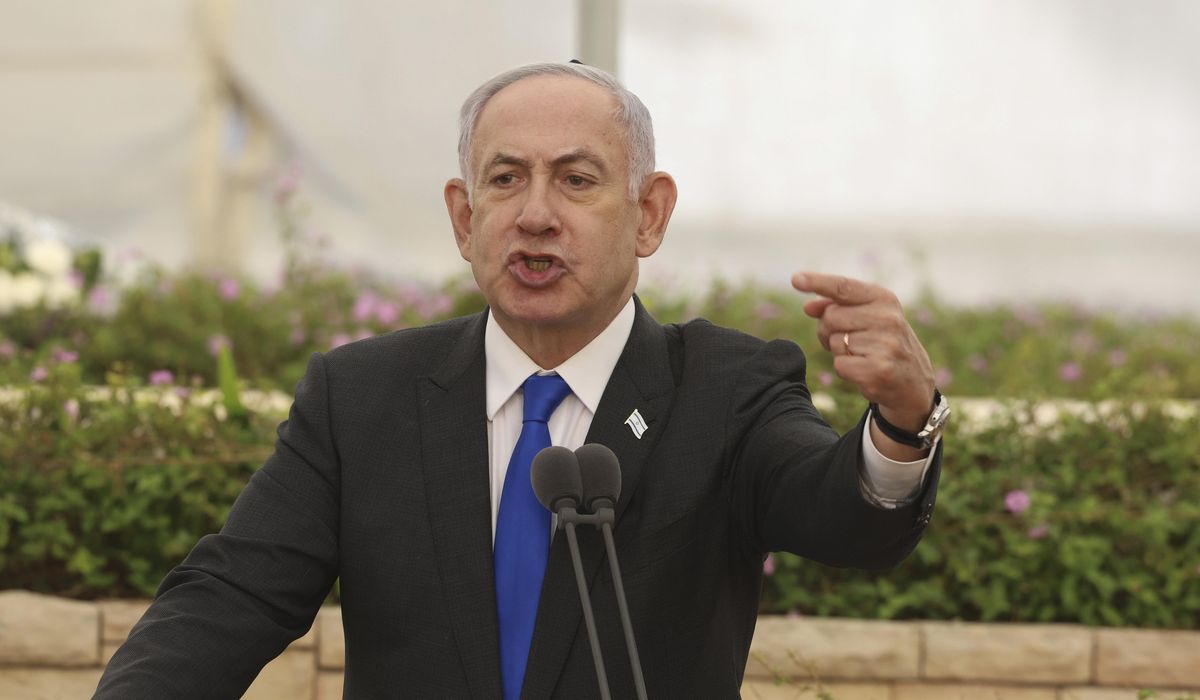


Israeli Prime Minister Benjamin Netanyahu on Sunday defended his claims that the U.S. had slow-walked vital arms shipments in the midst of the war in Gaza, escalating a feud that has caused strategic and political headaches for President Biden.
While expressing general appreciation for American backing in the nearly eight-month clash with the Palestinian militant group Hamas, Mr. Netanyahu said he released an English-language video complaining about a “dramatic drop” in weapons shipments because efforts at quiet diplomacy with Washington had failed.
“For many weeks,” Mr. Netanyahu told a weekly Cabinet meeting in Jerusalem Sunday, “we appealed to our American friends to speed up the shipments. We did it time and time again. We did this at the senior echelons, and at all levels, and — I want to emphasize — we did it in private chambers.”
“After months of no change in the situation,” he added, according to the Times of Israel. “I decided to express it publicly.”
U.S. officials have strongly challenged Mr. Netanyahu’s version of events, even as there has been open clashes between the two governments over the conduct of the war and Israel’s planned offensive into the refugee-thronged Gaza city of Rafah.
The White House said last week that just one type of heavy munition was paused for the Israel Defense Forces over its potential use in an urban setting, but there had been no general embargo on military aid.
The White House was “perplexed” by Mr. Netanyahu’s claims, national security spokesman John Kirby told reporters last week.
“The idea that we had somehow stopped helping Israel with their self-defense needs is absolutely not accurate,” Mr. Kirby contended.
But despite the pushback he received from Washington, Mr. Netanyahu said Sunday, “I am ready to suffer personal attacks for the sake of Israel’s security.”
Israeli Defense Minister Yoav Gallant was dispatched to Washington for talks starting Sunday on aid flows and other issues.
Mr. Biden has continued to defend Israel’s right to defend itself after the murderous Hamas Oct. 7 attack, but faces fierce criticism of Israel’s conduct of the war and the rising number of civilian casualties both from allies abroad and from his own Democratic political base at home.
U.S. officials are also reportedly stepping up their lobbying campaign to head off a second-front war for Israel along its northern frontier with Lebanon’s Hezbollah movement.
The Netanyahu government has stepped up talk of the need to deal with a low-grade clash with the heavily armed Shiite movement that began shortly after Oct. 7, which has included drone and missile strikes from both sides across the tense border.
The U.S. and France are leading a diplomatic push to prevent a wider Middle East war, and American officials are said to be warning the Netanyahu government that the country’s famed Iron Dome missile defense system could be overwhelmed in a full-scale clash with Hezbollah.
The war in Gaza continued to grind on, though Israel for now has refrained from the full-scale assault on Rafah that many feared.
The Associated Press, citing Palestinian security and health officials, reported that at least 39 people were killed by Israeli strikes across northern Gaza on Saturday.
Israel said Saturday that its fighter jets targeted two Hamas military sites in the Gaza City area but offered no other details on the operation.
• David R. Sands can be reached at dsands@washingtontimes.com.
